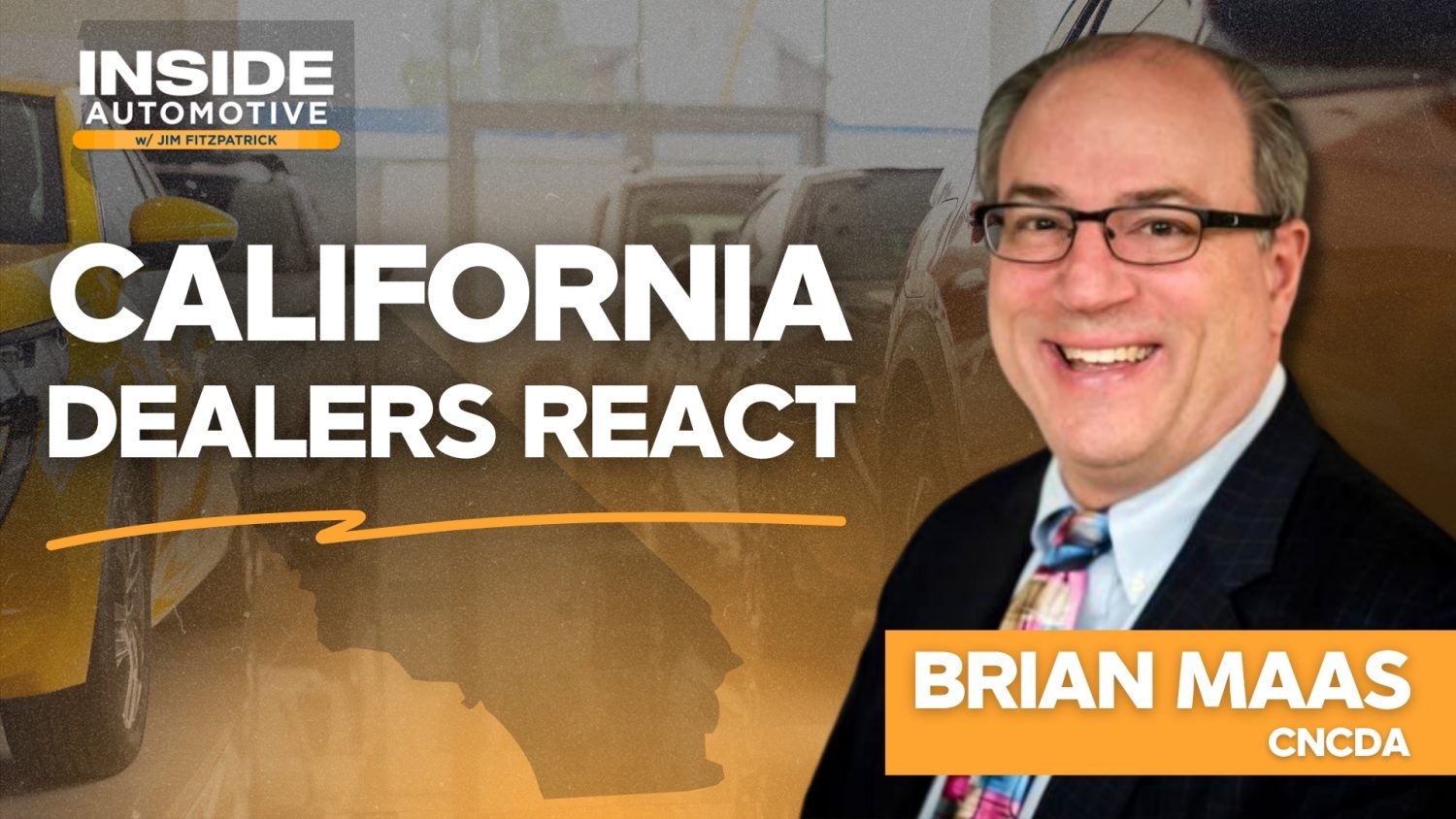California remains the most closely watched automotive market in the country. The California New Car Dealers Association’s (CNCDA) Q3 2025 California Auto Outlook report offers insights into where the market is headed. On today’s episode of Inside Automotive, CNCDA President Brian Maas breaks down the latest trends and the association’s recent advocacy efforts.
The U.S. auto market saw a surge in electric vehicle (EV) sales during the third quarter, driven mainly by the expiration of federal incentives. Nearly 28% of all EVs sold were purchased in California, and the state’s EV market share now hovers in the mid-twenties, meaning almost one in four vehicles sold is electric. Exorbitant gas prices, about $1.50 more per gallon than the national average, and longer commutes continue to drive EV adoption. Another incentive, the Clean Air Vehicle Decal program, which allows EV drivers access to HOV lanes, also boosted sales, though that program expired at the end of September.
Maas expects EV sales to slow in the coming months but stresses that the market for electric vehicles in California remains significant. While reaching 100% EV adoption over the next decade is unlikely, EV penetration is expected to grow steadily.
The CNCDA is also actively engaged in regulatory and legal matters. Earlier this year, the association launched its Calibrate campaign to urge the California Air Resources Board (CARB) to adjust its Advanced Clean Cars II (ACC II) mandate, which was initially deemed unfeasible. CARB has temporarily paused the rule for the 2026 model year. In addition, four heavy-duty truck manufacturers are involved in a federal lawsuit challenging compliance with the Clean Truck Partnership.
The association has also filed lawsuits against automakers attempting to bypass state franchise laws. In April, CNCDA sued Volkswagen’s affiliate Scout Motors, and in August, it filed a case against Sony Honda Mobility, alleging both companies are competing directly with their dealers. These cases are progressing through the courts.
Looking ahead to 2026, CNCDA is focusing on dealer compliance and advocacy. Governor Newsom signed Senate Bill 766, the California Combating Auto Retail Scams (CARS) Act, which changes dealership advertising, record-keeping requirements, and establishes a three-day cooling-off period for used cars priced under $50,000. The association is proactively educating dealers to ensure they are compliant when the law goes into effect in October 2026.
The upcoming gubernatorial election is another key focus. With Governor Newsom nearing the end of his term, CNCDA plans to ensure dealers are actively engaged in evaluating candidates who will support the retail automotive industry.
“If you can figure out how to do business in California, you can figure out how to do business anywhere.”
California’s automotive market remains massive and influential. The state accounts for one in every eight new vehicles sold in the United States, with Orange County alone selling more cars than 25 states. Sales tax revenue from new-vehicle sales provides roughly 10% of state and local taxes, and the average dealer employs about 95 staff members. Despite the regulatory complexities, the state’s market potential continues to attract major dealers and investment.
California’s car market poses challenges, but if dealers succeed here, they can succeed anywhere. Having advocates like the CNCDA ensures that dealers have a voice.

